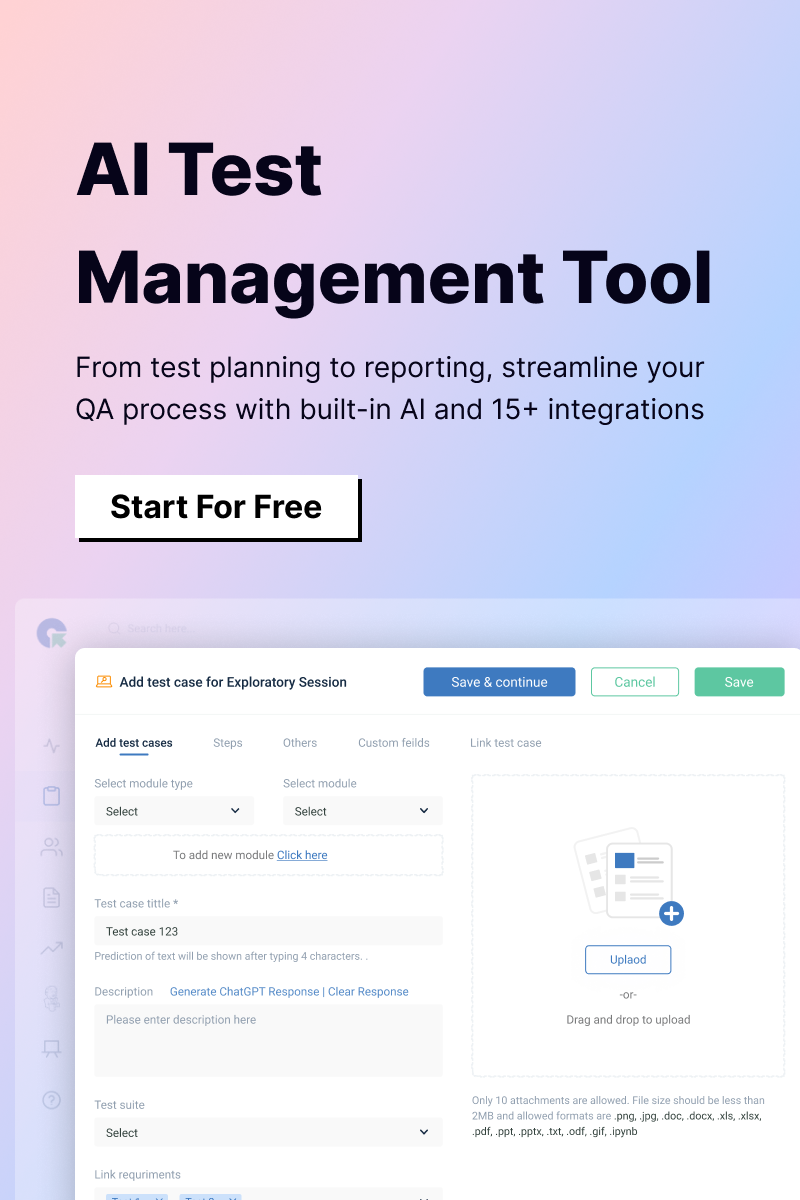The use of modern tools is the foundation of the mobile testing strategy. You can use multiple techniques and reasonably priced mobile app testing tools to put your mobile app testing strategies into practice. This article is for you if you don’t have a lot of time or resources to test your mobile apps.
The top six mobile application testing tools are listed below to help you manage and put your mobile app testing techniques into practice. If you are an expert in testing mobile apps, use these resources to improvise your plans!
Mobile Testing Tools: What Are They?
Mobile testing is the process of evaluating the performance, usability, and functionality of mobile applications using tools or open-source frameworks.
Mobile Testing Tool helps you automate the testing of your Android and iOS applications. These mobile application testing tools can cut down both the amount of time testing takes and the chances of human mistakes during test execution.
Top 6 Mobile Testing Tools
The leading automation companies use a variety of mobile app automation testing tools, among which are listed below:
Appium
Appium is a well-known and favored mobile test automation tool that capitalizes on Selenium’s popularity. Appium enables customers to test native, hybrid, and mobile web apps using the WebDriver protocol.
Features to highlight:
- Languages for writing scripts include Java, Ruby, Python, PHP, JavaScript, and C#
- For Selenium experts, it’s simple to adopt
- Can be integrated with different testing systems and frameworks
- Eliminates the need to recompile frameworks, another code base, or applications.
- Allows for test and code reuse across Windows, Android, and iOS
Kobiton
One of the most popular cloud-based solutions for testing mobile applications is called Kobiton. Until recently, Kobiton was the only tool that provided scriptless automation. Kobiton’s scriptless automation feature allows users to create automated test scripts and run them simultaneously on multiple devices, despite new solutions offering the same function. The rapid and precise resolution of all test failures is another appealing feature of Kobiton.
Features to highlight
- Users have the option of performing manual, automated, or scriptless app testing.
- Lower-tier plans are less expensive than the other tools on this list.
- Provides easy CI/CD platform integration, allowing you to build effective processes.
- Provides centralized report histories and data logs.
Robotium
A tool for automated Android testing called Robotium is available for both native and hybrid apps. On our list of open-source tools, it is the last item. It helps with comprehensive automation test scripts for Android applications that are simple to write. Automation testers can create functional, system, and user acceptability test cases with the help of Robotium.
Features to highlight:
- Test scripts are simple and reliable.
- With this tool, pre-installed app automation is feasible.
- Compared to Appium, it has faster test automation because of run-time binding with GUI components.
- Works with only Android apps
Katalon Platform
The Katalon Platform is based on Appium and Selenium, reduces the tool’s present high learning curve, and offers a codeless testing experience to users of all skill levels. Testing on Windows, macOS, and operating systems like Linux is also possible in addition to supporting Android and iOS devices.
Features to highlight:
- Recording and playing back, pre-made project templates, built-in keywords, and short test development
- Manual and Script Modes are provided to switch between low-code and scripting options.
- Image-based testing to identify and record visual elements
- Refactoring of objects and the design of the Page Object Model reduce maintenance requirements.
- Sharing test artifacts makes it simple to import and export test assets between projects.
- Built-in advanced reporting to deliver useful information and speed troubleshooting.
XCUI Test
Apple created the testing framework known as XCUITest. Only iOS applications are supported for writing UI tests. Writing tests inside the Xcode IDE is possible by XCUITest, which is especially useful for iOS developers. The tool can use in combination with Xcode’s UI test recording tools.
Features to Highlights:
- A platform-specific solution
- Swift and Objective-C are supported.
- Quick test execution on Apple devices
- Integrations with Xcode
- Enables the Xcode UI test recorder to use for recording tests
BrowserStack
By giving developer teams immediate access to a cloud platform that enables them to thoroughly test their websites and mobile applications for functionality, performance, and visual appeal, BrowserStack enables them to quickly and widely distribute bug-free software. You can easily test your web and mobile applications on more than 3,000 different mobile devices with BrowserStack.
Features to highlight:
- Live testing and user interfaces are incredibly simple to use and comprehend.
- 1500+ real devices and simulators are used to carry out the workflows.
- Without any delay, the Browerstack cloud enables the deployment of parallel executions.
- allows you to test your development and staging environments without the burden of device configuration.
- Create screenshots of your designs and layouts with only one click to quickly test them.
Get Started With Mobile Testing Tools
Any of the apps could be used to get started if you are new to mobile test automation. You can quickly become an expert at writing scripts and running tests with some guidance. We advise using any of the above mobile performance testing tools if you’re ready to take the testing of mobile apps into your own hands to acquire the best results, enhance application performance, and receive better responses.









